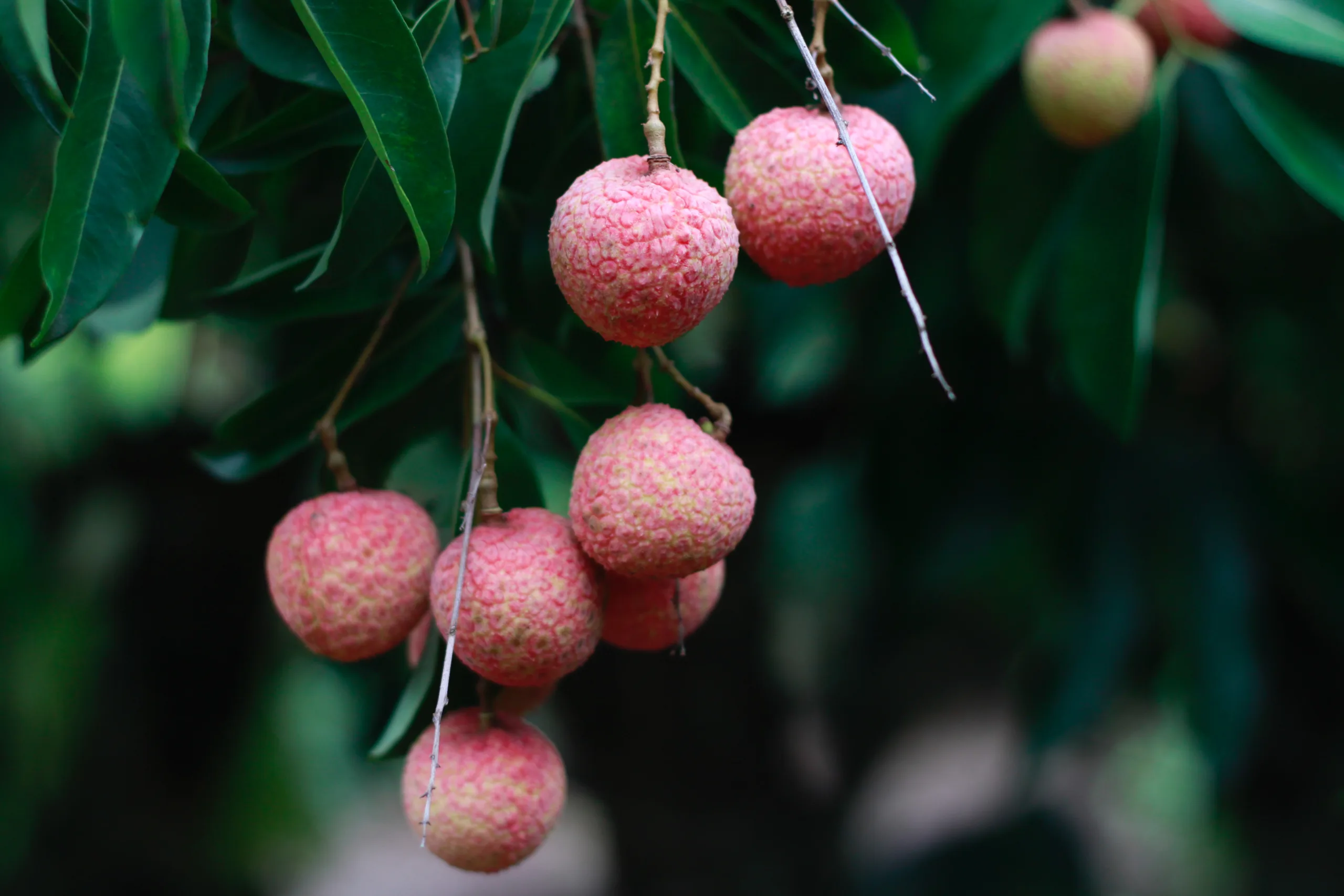Introduction
Can Dogs Eat Lychee? As dog owners, we always want to ensure the safety and well-being of our furry friends. One common concern is about what human foods are safe to share with our dogs. Lychee, with its sweet and exotic taste, is a popular tropical fruit enjoyed by many, but can dogs safely consume lychee? In this article, we will delve into the nutritional aspects of lychee, potential risks it may pose to dogs, and offer guidelines on feeding this fruit to your canine companion.
Click here for more about dogs
What Is Lychee?
Lychee (Litchi chinensis) is a small, round tropical fruit with a rough, pink-red skin and a juicy, white flesh. Native to Southeast Asia, lychee has gained popularity worldwide due to its unique flavor and refreshing taste. Rich in vitamins and minerals, lychee is often consumed fresh, dried, or made into various products like jams and jellies.
Nutritional Value of Lychee
Before understanding if dogs can eat lychee, let’s explore its nutritional profile. Lychee is a good source of essential vitamins, including vitamin C, vitamin B6, and niacin. Additionally, it provides vital minerals like potassium, copper, and phosphorus. Moreover, lychee contains antioxidants, which can aid in reducing oxidative stress and promoting overall health.
Can Dogs Eat Lychee?
The Verdict
The short answer is that dogs can technically eat lychee, but it is not recommended to feed them this fruit regularly. While lychee is not inherently toxic to dogs, it comes with potential risks that pet owners should be aware of.
Potential Risks of Feeding Lychee to Dogs
- Digestive Upset: Dogs have sensitive digestive systems, and introducing new foods can lead to stomach upset, diarrhea, or vomiting. Lychee’s high sugar content might not sit well with some dogs, especially those with pre-existing gastrointestinal issues.
- Choking Hazard: The lychee’s large seed poses a choking hazard to dogs, especially small breeds. Accidentally swallowing the seed can lead to blockages in the digestive tract, requiring immediate veterinary attention.
- Allergic Reactions: Some dogs may be allergic to lychee, which can manifest as itching, skin rashes, or even difficulty breathing. If your dog exhibits any allergic symptoms after consuming lychee, consult a veterinarian promptly.
Moderation is Key
If you decide to give your dog a taste of lychee, always do so in moderation. Monitor your pet’s reaction to the fruit and avoid overindulgence. Remember, a well-balanced and nutritionally complete diet specially formulated for dogs is the best way to keep them healthy.
Are Any Fruits Toxic to Dogs?
While lychee poses some risks, it’s essential to be aware of other fruits that can be toxic to dogs. Some common fruits to avoid include:
- Grapes and Raisins: These can cause kidney failure in dogs.
- Avocado: Contains persin, which can be toxic to dogs in large amounts.
- Citrus Fruits: The citric acid and oils can cause gastrointestinal irritation.
Always double-check before sharing any human food with your canine companion, and when in doubt, consult your veterinarian.
FAQs
Q: My dog accidentally ate a lychee seed; what should I do?
A: If your dog ingests a lychee seed, monitor them closely for any signs of distress. If your dog shows symptoms of choking, such as difficulty breathing or excessive drooling, seek immediate veterinary assistance.
Q: Can I give my dog canned lychee or lychee jelly?
A: It’s best to avoid giving your dog canned lychee or lychee jelly. Canned fruits often contain added sugars and preservatives, which can be harmful to dogs. Stick to fresh fruits in moderation.
Q: Are lychee leaves or flowers safe for dogs?
A: There is limited information available on the safety of lychee leaves and flowers for dogs. To be safe, it’s best to keep your dog away from consuming any part of the lychee plant.
Conclusion
In conclusion, while lychee is not toxic to dogs, it is not a recommended addition to their diet. The potential risks, including digestive upset, choking hazard, and possible allergic reactions, outweigh any potential benefits. As responsible pet owners, it is crucial to prioritize your dog’s health and well-being by sticking to a balanced and appropriate diet designed specifically for dogs. If you ever have concerns about your dog’s diet or suspect they have ingested something harmful, consult your veterinarian for professional advice.
Click here for more
